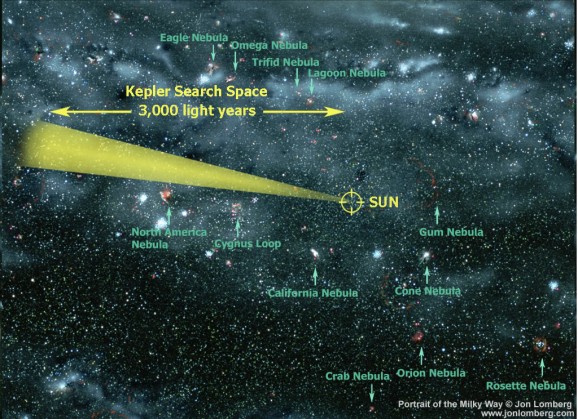Scientists Appeal To Congress To Support Technology To Search for Extraterrestrial Life
This article is more than 2 years old
 Given how many candidate planets Kepler has identified, and the recently announced estimate that billions of habitable planets may exist in the Milky Way alone, scientists are understandably excited about the prospect of finding alien life. They’re so excited, in fact, that they made a plea to Congress this week to embark on the next phase of searching for life.
Given how many candidate planets Kepler has identified, and the recently announced estimate that billions of habitable planets may exist in the Milky Way alone, scientists are understandably excited about the prospect of finding alien life. They’re so excited, in fact, that they made a plea to Congress this week to embark on the next phase of searching for life.
Sara Seager, MIT’s exoplanet expert who came up with her own equation to express the probability of finding extra-terrestrial life, spoke at the “Astrobiology: The Search for Biosignatures in our Solar System and Beyond” hearing of the House Committee on Science, Space and Technology and argued that while we have some technology capable of detecting candidate planets and other life forms, we need more. “This is the first time in human history we have the technological reach to find life on other planets,” she said. “People will look back at us as the ones who found Earth-like worlds.” NASA’s head of astrobiology seconded that, saying that humans finally have the means to gather data about other life forms in the universe, which means it’s incumbent upon us to do so.
We’ve got some probes and rovers looking for life right now, such as the Curiosity rover on Mars and the Indian probe that will arrive at the Red Planet next year to look for signs of methane, which may indicate life. But that’s only the tip of the iceberg…er, cosmos.

While scientists were excited about Congress’ “alien hearing,” especially given that the House has only a few days left of work before they break for the rest of the year, that allocation of precious time drew criticism from those who don’t think such a hearing is worth it. Complicating matters is the fact that the heavily Republican Science Committee has conflicting views about the merits of science in general. Some of the members of the committee, such as Georgia’s Paul Broun, subscribe to creationism: “I do not believe that the Earth’s but about 9,000 years old. I believe it was created in six days as we know them,” Broun says. Whoo boy.
The Committee’s Chairman, Texan Lamar Smith, made it clear that he thinks scientists contrived the notion of global warming, particularly humankind’s responsibility for it. Wisconsin’s James Sensenbrenner agrees, and has even called climate change “scientific fascism.” It’s interesting and encouraging that a committee comprised of these guys held this hearing — maybe it educated them. Or maybe it was just lip service, and throughout 2014 and beyond they’ll say, hey, remember when we gave you those two hours in December of 2013? That was your chance.
The scientists who spoke at the meeting not only made a case for the importance of advancing our search for alien life, but also for developing technologies crucial to the search. Such technologies don’t just benefit astrobiology — they benefit people here on the ground, too. NASA representatives pointed out that the map of the 2010 Deepwater Horizon oil spill was generated by technology initially developed for astrobiology.
The meeting is particularly important right now, given that if sequestration happens in early 2014, as some believe it will, the resulting cuts would be devastating, particularly for missions such as Cassini. While some scientists were encouraged by the meeting, others had a different take:
Wow. NASA is currently have a Town Hall meeting and essentially telling planetary scientists to look for new jobs. Wow.
— Mike Brown (@plutokiller) December 3, 2013
That pessimistic view may come from the beliefs of the politicians in the room, or from some of the comments and questions such as, “Let’s assume that we find life? What do we do then? How does that change things with us in the way we view ourselves?” In other words, so what if we do find alien life? If it’s not trying to kill us, or us it, then…so? Oh, and by the way, finding alien life is going to really put a wrinkle in that whole creationism thing, so let’s maybe put a lid on that. Although one could interpret such questions as sincere, and as the first step at attempting to grasp the magnitude of what’s at stake.

Another representative said, “You’ve pretty much indicated life on other planets is inevitable. It’s just a matter of time and funding” — in other words, calm down, scientists! It’ll happen eventually, when some suckers give you money. What’s the rush? Or maybe that too is really code for “we need some time to let this settle in.” However you interpret such responses, the committee’s willingness to listen to astronomers and scientists for two hours is a good sign. Maybe next time the scientists can bring a Speak & Spell and a saw blade to demonstrate what alien-hunting looks like on the cheap.












